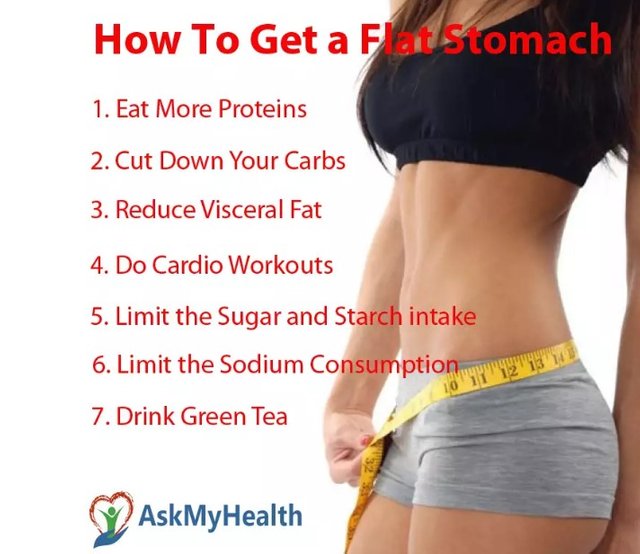
There are a number of factors to keep in mind when you start to plan healthy workouts while pregnant. It is important to take into account pregnancy weight. This could cause a shift in your body's balance close to your due date. This could make it harder for your body to lose weight. To determine the best exercise for you, consult your healthcare provider. You and your healthcare provider can decide whether to run or walk.
Avoid traditional abdominal workouts
You have probably heard that pregnancy should not be a time for traditional abdominal exercise. It may sound contradictory, but traditional abdominal exercises can cause damage to your growing baby. These exercises can make it more difficult to repair the damage done to your abdominals. You don’t need to stop working out, but you can change your workout routine. Continue reading to learn about the risks and benefits associated with traditional abdominal exercises during pregnancy.
Get in moderate aerobic intensity
It is safe to do moderate-intensity aerobic activities while pregnant. As long as you listen to your body, moderate-intensity physical activity is perfectly safe. Exercise during pregnancy can improve muscle tone, stamina, circulation, constipation, and reduce leg pain. It can improve your posture and balance, as well as prepare you for childbirth.

Stretching
Doing regular stretches while pregnant can reduce aches and pains and help you feel more comfortable and relaxed. It helps lengthen muscles and loosen the whole body. It's also beneficial for the developing foetus because it increases flexibility and comfort levels. You can also stretch daily to improve organ tone, and to prevent prolapse of the pelvic organs. Here are some helpful stretches for pregnant ladies.
Yoga
Yoga is a great way for pregnant women to stay fit and tone their muscles. Pregnant mothers will love yoga's flexibility and its gentleness on their joints. Hot yoga is not recommended for pregnant women as their bodies are unable to dissipate heat. Mix light exercises with your yoga routines to avoid overheating and straining the joints. Discuss modifications with your instructor if you feel discomfort.
Pilates
Most Pilates moves are easy to do during pregnancy. Pilates exercises focus on slow, controlled movements that don't put stress on joints. While it is best to avoid supine exercise and lying on the stomach, you can still do planks. Your body's natural curves should be respected and your workout intensity reduced. Pilates benefits go beyond its physical benefits.

FAQ
What's a good workout plan for 7 days?
A seven-day program should include three days of cardio training (running, biking and swimming), two strength exercise (using free weights or weight machines) and one flexibility/core work out (yoga, Pilates). It's essential to do each activity at least once a week. The total time for each session should not exceed 45 minutes.
Cardiovascular Exercises: Swimming, Cycling, Running
Your goal is to exercise at least 60 minutes each week. To achieve the best results, aim to exercise for at least 75 minutes each week. Cardio exercises can increase blood flow and stimulate the growth of muscles.
Strength Training
Cardio exercises target the heart, lungs and muscles. Strength training targets the muscles, tendons and bones. Strength training can help you burn calories even when you're not working out.
Flexibility & Core Workouts
Flexibility and core workouts are great ways to strengthen your entire body. Both yoga and Pilates are excellent options.
Do I have to exercise every single day?
No! No! That means walking fast enough to be slightly out of breath or biking hard enough to sweat.
How Metabolic health is key to aging well
People are living longer lives today than at any point in history. They are also becoming more sick as a result. Despite making great progress in medical science, it is becoming more apparent that our current approach to medicine is not working.
We have to change how we see health and aging. For healthy aging, it is important to look at metabolic well-being - not just weight reduction but overall wellbeing.
Your metabolism must be strong and healthy to ensure you live an active lifestyle for many years to come.
There are many methods to improve your metabolic state. These 7 foods can be incorporated into your diet.
-
Resveratrol has been found to be a key ingredient in blueberries, and it has been shown that it can help increase cell longevity. They also contain antioxidants and vitamins C & E.
-
Pinto beans and lentils make excellent sources of fiber as well as plant-based protein. These nutrients help to keep blood sugar levels constant so they don't spike and crash.
-
Broccoli is rich in sulforaphane. Studies have shown that it protects cells from DNA damage. It could even slow down the growth of cancer.
-
Chia Seeds contain high levels of fiber and omega-3 fat acids. They are also rich in antioxidants, protein, and fiber. All of these nutrients can promote heart health and brain function as well as gut health.
-
Green Tea contains polyphenols called caechins. Studies show that catechins in green Tea can reduce the risk of developing diabetes, stroke, cognitive decline, and bone fractures.
-
Salmonis a great source of lean protein. It is low in saturated fat and high in vitamin D.
-
Walnuts are high in omega-3s. They also contain antioxidants like alphalipoic Acid (ALA). ALA helps boost energy production and protects against inflammation.
What dietary supplement is best for weight loss?
You need to exercise and diet in order lose weight. Some people find that certain supplementation can be helpful.
A few studies have suggested that omega-3 Fatty Acids might help weight loss. Omega-3s are essential fats that are important for brain function and cell membrane integrity. These fats are found in seafood such as salmon, tuna and shrimp.
Other research suggests that green tea might be beneficial for weight loss. Green tea is rich in catechins, antioxidants which may boost metabolism and aid weight loss.
What is the best way lose weight?
It can be difficult to lose weight. Many people give-up easily because they don’t have the right information.
There are simple steps you can take in order to lose those extra pounds.
First, you must ensure you eat fewer calories than you burn. If you consume more calories than what you burn, you will gain weight.
For all of those extra calories to be burned, it is important that you exercise regularly. There are many types of exercise you can do, such as walking, running, cycling, and dancing.
Third, quit smoking cigarettes and alcohol. These habits lead to a higher intake of calories than usual.
Fourth, reduce your intake of fatty and processed foods. You can replace them with healthier options such as fruits, vegetables, lean meats, whole grains, nuts, seeds, beans, etc.
Fifth, it is important to make lifestyle changes and develop new habits. For example, you may need to get up early every morning to exercise before work.
Sixth, it is important to be disciplined about your diet and follow it.
Lastly, you can join a gym or attend an aerobics class to burn those excess calories.
By following these simple tips, you will soon begin to notice results.
How many times a week should I exercise?
It all depends on your time and the type of exercise that you enjoy. An average guideline is to do moderate-intensity aerobic activity 3 to 5 days per semaine. Don't go overboard. Consistent exercise is essential to achieving maximum benefit from your workouts.
Which exercises are most effective for me?
It all depends upon your fitness goals. Some people choose to focus on endurance activities, such as swimming, cycling, and running. Others love lifting weights or using resistance bars. There are many options for exercise today. Pick the option that fits your needs.
Statistics
- Cardmembers earn 5% Back at Amazon.com with a Prime Credit Card. (amazon.com)
- According to the American Heart Association, blood pressure should be checked at least once every two years, beginning at age 20. (my.clevelandclinic.org)
- Are You One of the 20% of Guys (mh.co.za)
- According to the American Academy of Dermatology (AAD), men over 50 are at a heightened risk of developing it. (healthline.com)
- By John Thompson Take a whopping 38% off a set of PowerBlock Pros. (menshealth.com)
External Links
How To
What nutrients do men need each day?
Men need healthy growth and development. Vitamins, minerals, vitamins, nutrients, carbohydrates, fats and fiber are all essential for the body.
Specific nutrients are also required by the male body at different times during the day. Your body makes hormones, antibodies and enzymes when you are asleep. When you get up, protein is used to repair and build muscle.
Your body uses the night to break down fat and store extra energy as glucose. Your body will still need nutrients, but it will require fewer calories during this time. You might have an occasional snack during the night if your stomach is feeling hungry.
You need to eat enough carbs and protein when you exercise. If you train hard, you may experience muscle soreness after exercising.
To prevent this from happening, you need to consume carbs or protein within two hours. To get energy from glucose, your body will start to degrade stored glycogen.
Additionally, it is important to eat protein right away after your workouts are over. This prevents the breakdown of muscle tissue that occurs while you sleep.
During periods of intense physical activity, your body produces lactic acid. It is a form of lactic acid that builds up in the bloodstream. This causes fatigue. Eat foods high in carbohydrate, such as fruits, vegetables, to avoid this.
Carbohydrates offer your body the energy it needs for recovery from exercise.
Your diet may include lean meats like fish, eggs, milk cheese, yogurt or beans as well as lean proteins such as fish, eggs, egg yolks, cheese, yogurt, bean, peanuts and seeds.
All of these foods contain high-quality protein. Protein promotes muscle growth, and helps repair damaged tissues. Protein is also necessary for the production of sex hormones such as testosterone.
A healthy skin, nails and joints requires sufficient dietary fats. Healthy men need between 20% - 35% of the total caloric intake to be fat.
Fat protects your heart from cancer and keeps it strong. It also keeps your brain functioning properly.
You can get most of the fat you need from vegetable oils like olive oil, sunflower oil, corn oil, soybean oil, peanut oil, and safflower oil.
These oils are high in monounsaturated fatty acids (MUFAs). MUFAs lower cholesterol and decrease inflammation. They protect your cells from damage by free radicals.
Saturated fats (SFAs), are found mainly in animal products such as meat, milk products, and butter. SFAs are known to raise LDL ("bad") cholesterol and raise triglycerides. They promote weight gain as well as belly fat.
Polyunsaturated oils (PUFAs), are found in plant-based foods like nuts, seeds and vegetable oils. PUFAs improve cardiovascular function and decrease inflammation. They can also control blood sugar levels and cholesterol.
Low HDL ("good") cholesterol is a common cause of erectile dysfunction in men. A high intake of saturated fats leads to higher levels of bad cholesterol.
Men who eat large quantities of red meats or pork may develop prostate problems. If cooked at high temperatures, the nitrates become nitrosamines. These compounds can cause cancer.
Most processed meats have nitrites and harmful chemicals. Avoid them.
The American Heart Association suggests that no more than two servings per week of red meat should be consumed. Instead, choose poultry, fish, legumes, tofu, whole grain bread, and cereals.